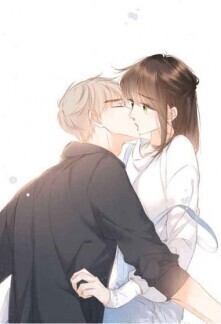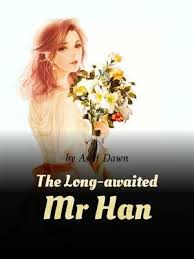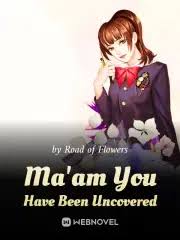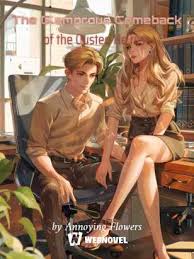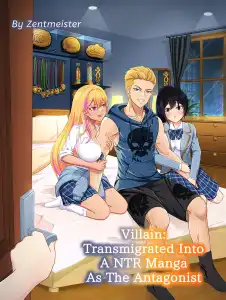The Story in 3 Sentences
A woman dies at thirty-three, her life a cruel joke orchestrated by her stepmother and stepsister, and donates her kidney to a stranger she deems a good man .
Reborn at age three, she resolves to shatter their manipulative control and forge a new destiny free from their shadow .
Her journey navigates the gritty reality of 1980s village life, where she must reclaim her power, master hidden skills, and perhaps cross paths again with the man whose life she saved .
Why It Stands Out
1. The Gritty Charm of 80s Village Realism
The novel doesn’t romanticize the past; it plunges you into the authentic, unvarnished simplicity and poverty of 1980s rural China, where everyone minds their own business and life is an honest, daily struggle . This grounded setting provides a unique and compelling backdrop for a rebirth story, making Tang Yuxin’s victories feel hard-won and real.
2. A Protagonist Who Feels the Weight of Her Past
Tang Yuxin isn’t just reborn; she carries the deep, visceral trauma of her previous life, a life where she was systematically reduced to “trash” while her stepsister lived as a princess . This profound emotional burden informs her every action, making her fight for autonomy not just a plot point but a cathartic, deeply personal crusade that resonates with readers who have felt powerless .
3. The Slow-Burn Mastery of Hidden Talents
The story excels in its meticulous portrayal of Tang Yuxin’s quiet, deliberate acquisition of skills, particularly medicine. Her journey involves slowly copying from Chen Zhong’s book collection, practicing needlework with intense focus, hinting at a future where her hidden genius will be her greatest weapon . This focus on patient, intellectual growth offers a satisfying counterpoint to more action-driven revenge plots.
Characters That Leave a Mark
There’s Tang Zhinian – a big, strong man with a kind and honest demeanor, whose greatest pride is his daughter, embodying a pure, protective paternal love that anchors the story .
You’ll meet Chen Zhong, who is the old man whose extensive book collection becomes Tang Yuxin’s secret library, a trusted figure whose keen eyes and quiet presence hint at a deeper role in her medical awakening .
And Gu Ning? They’re the good man, the 38-year-old divorcee who received Tang Yuxin’s kidney in her past life, a figure shrouded in mystery whose cold, clear eyes meet hers again in this new timeline, setting the stage for a complex, fated connection .
The Flaws Fans Debate
Some readers feel the protagonist regresses, becoming worse off than in her past life around chapter 300, which undermines the core premise of a rebirth story and feels like a betrayal of the character’s journey .
A common criticism is the protagonist’s perceived passivity, as she continues to be used by her mother despite her hatred, and her baffling decision to never tell Gu Ning the truth about saving his life, leading to frustrating plot developments .
The translation quality is frequently cited as a major flaw, with readers reporting inconsistent character names and pronoun errors that disrupt immersion and make the reading experience jarring .
Must-Experience Arcs
Ch. 1–50: The Rebirth and First Steps – Tang Yuxin returns to her three-year-old body, immediately confronting the manipulative dynamics of her family and beginning her quiet rebellion by securing her father’s love and accessing Chen Zhong’s knowledge.
Ch. 200–300: The Ascent and the First Fall – She establishes herself as a capable doctor, gaining confidence and respect, but the narrative takes a dark turn as old enemies resurface and she faces a crisis that makes readers question if her rebirth has truly changed her fate.
Ch. 900–1128: The Final Reckoning and Legacy – In the sprawling final chapters, Tang Yuxin must confront the full consequences of her actions and inactions, culminating in a final confrontation with her past and a definitive choice about her future and her relationship with Gu Ning.
Killer Quotes
“my money all goes to my father, my kidney to you, because you are a good man.”
Cultural Impact
The novel sparked intense debate in reader communities, with fans passionately defending its emotional depth while others publicly declared they stopped reading at specific chapters due to plot frustrations .
It became known for its “slow-burn” character development, with readers praising the lovable, sweet nature of characters like Tang Zhinian and Chen Zhong, even as they lamented the protagonist’s sometimes illogical choices .
The persistent complaints about translation errors became a well-known talking point, serving as a cautionary tale for readers about the variable quality of translated web novels on certain platforms .
Final Verdict
Start Here If You Want:
A cathartic story of overcoming profound familial abuse and reclaiming one’s life from the very beginning.
A unique, grounded historical setting that offers a vivid escape into a different time and culture.
A complex, slow-burn romance centered around a mysterious debt of life and a second chance at connection.
Study If You Love:
Narratives that explore the psychological burden of trauma and the long, non-linear path to healing and empowerment.
The trope of the hidden genius, particularly in a medical context, and the satisfaction of watching knowledge become power.
Stories that use a rebirth premise not just for revenge, but for deep character study and the exploration of fate versus free will.
Avoid If You Prefer:
Fast-paced, action-oriented plots with a consistently assertive and proactive protagonist.
Stories with flawless, professional-grade translations and editing.
Narratives where the main character’s decisions are always logical and self-serving, avoiding any frustrating or passive moments.

